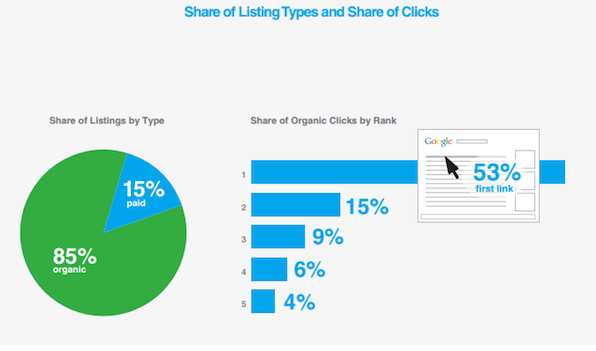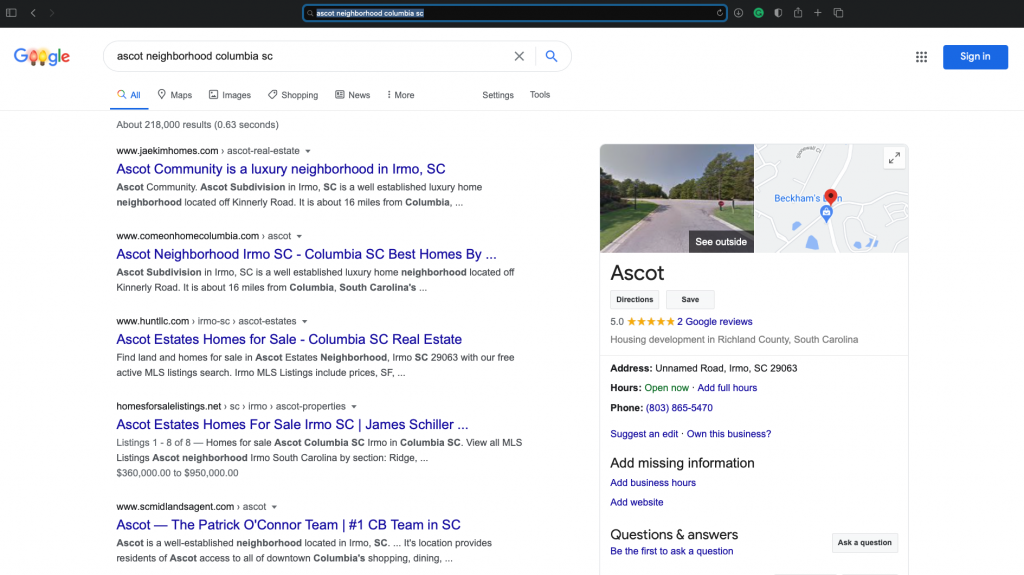Location, Location, Location
- Home
- Real Estate (SEO)
Real Estate Search Engine Optimization (SEO)
If you understand this real estate principle, you have a basic understanding of search in real estate for agents and agencies. According to a recent National Association of Realtors (NAR) study, over 85% of your potential customers will use the internet before starting the home buying process. Or, to say that another way, if you’re not in a position for those potential clients to find you on the internet, then you are missing over 85% of your potential business. Let that sink in a minute.
So, what does that “look like” to be on the internet for your business as a Realtor or Real Estate Agency? And I want to warn you here. If the first paragraph was a revelation for you, this next bit of information should really make you uncomfortable. But, here goes!
If 85% of your potential clients are using the internet, you ought to ask: HOW are they using the internet?

Long Tail Keywords for Real Estate: Why They Mattter
I’ve been helping Realtors and major real estate agencies all over the US for almost two decades. I am always amazed when they tell me their stories. I won’t bore or overwhelm you with the specifics here; but, I will tell you this. Most of the agent’s stories in our initial interview go something like this:
Gee, I’ve been in this area for X years and I mainly market in the town/city of Y or in neighborhoods A, B, and C. Is that right, I say. Oh yes, they confirm. In fact, I do 70% of my business in that spot (town/city Y or neighborhoods A, B, and C). GREAT! I say. I have an idea for you. Let’s focus your keywords and marketing on that area. What do you mean? They ask. I say: Well if you’re an expert in that area and you don’t have ALL the business there then let’s focus your website on amplifying your presence and search ranking there! GREAT IDEA RIGHT!
This is normally the part of the conversation where either I get a blank stare or if on the phone, there is dead airtime just waiting for someone to say something next. Finally, mercifully, when the silence is broken, it normally goes like this:
Well, I just couldn’t limit myself like that. I mean, I need business from all over the city. I need business from every neighborhood. You get that right!?! I smile and say sure. I get that. Then, I say how happy would you be if you could increase your business 10% next year? Happy. They say. What about 20%? Very Happy. They say. At this point, there is some number that I ask that they assure me that if they could get to that percentage then they would adopt me, buy me a new house, etc…
Then, comes the pivotal question: How much of the TOTAL BUSINESS ARE YOU DOING IN TOWN/CITY Y OR NEIGHBORHOODS A, B, and C?
Drumroll, please! Guess what? It is rarely over 20% of the total sales volume in those areas. So what do you think?
MATH: It’s Not For Just Balancing Your Bank Account Any More
I realize this is the part where I will anger some of you by doing some simple math; accordingly, I will hurry through it. If the agent above is doing 20% of the business in their chosen area above, and if we can get them another 20% of the total business (and that was indeed 70% of their total business as outlined above), guess what!
70%x20%=14% = WE JUST GREW THEIR ENTIRE SALES REVENUE BY 14% – And they said they would be happy at 10%! Oh ye of little faith! (Matt 8:26 – to ensure proper credit on that one)
Now, I am sure that by this point that you’re saying that I didn’t bring you all this way to multiply percentages. And you would be right!

Realtor Rankings On Page 1 of Google: The Math That Really Matters
Here it comes! Spoiler alert! I am saying it here.
UNLESS YOU ARE ON THE FIRST PAGE OF GOOGLE AS A REALTOR OR REAL ESTATE COMPANY UNDER YOUR KEYWORD(S), IT DOESNT MATTER, PERIOD!
Here is why.

Let me summarize the above chart for you:
- Organic Search, the search you have from content and organic SEO that we do, has 85% of all the traffic that comes to the search engine vs. Pay Per Click (PPC), the search where you pay Google for keywords and corresponding clicks.
- OF THAT 85%, over 1/2 of the traffic goes to position #1 – and you can read the rest above.
So, in the real world, if you are in a smaller city or larger neighborhood that might get, let’s say, 50 searches a week, here is your breakdown (using the chart above*):
First, Organic SEO gets 43 of the potential clients while Pay Per Click (PPC) gets 7. Accordingly, if you’re paying more on PPC than you are on organic, you need to ask yourself why if organic gets roughly 6 times the traffic (and it does).
Out of the 43 that go to organic:
- A whopping 23 of the clicks go to position #1 (just a reminder, ALL OF THE PPC (normally 6 ads on page 1) got a total of 7)
- 6 of the clicks go to position #2
- 4 of the clicks go to position #3
- 3 of the clicks go to position #4
- 2 of the clicks go to position #5
The chart doesn’t show this fact; but, I know it’s abundantly clear to you that out of 50 total people who came to Google on a particular search that after 5 ranking places down (and ads) that there are only 5 potential clients left! ONLY 5 out OF 50 go beyond the first 5 places of the search!
Real Estate Agent and Agency Action Plan For Google
We are now adding logic to the math. This is where I have been trying to get us to, and congratulations, we both made it!
So, here’s the million-dollar question (or close):
If you know that you could make significant gains in your revenue by focusing in smaller areas (City Y or neighborhoods A, B, or C) and by gaining a larger market share (see above – going from 20% to 30%); and, if I tell you that it’s infinitely easier to gain search engine traction and ranking on those smaller area focus terms (City Y or neighborhoods A, B, or C) than it is on those larger area and more generic searches; and, finally, as you see above, if you don’t rank in positions 1-5 then your SEO is largely wasted money anyway, then why wouldn’t you focus on a smaller area by using more specific search terms (long tail search)?
Today’s consumers are more discerning than ever.
They don’t want to get hit by 10 million search results. They, too, have learned to be better long-tail searchers – adding more specifics in their search. Accordingly, they aren’t just looking for a home in Columbia, SC. They are looking for a home in the Ascot subdivision in Columbia, SC. Or, at least, the best clients – ready to buy clients – are!
Now, knowing what you know, it’s unlikely that you make it to 1-5 on “Real Estate Columbia SC” anyway – at least without a significant amount of time and SEO spend. But, you can make it in the more focused search of “ASCOT NEIGHBORHOOD COLUMBIA SC” gaining higher traffic and a more focused client (read that as ‘ready to buy’)!
To be highly successful and highly effective, choose your areas carefully, then focus on getting into the FAB 5 SEARCH PLACES. This will amplify your specific search traffic from ‘buy ready’ clients. To orchestrate an effective local search campaign, it is also necessary that you focus on basic LOCAL SEARCH.

Local Search: Realtor and Real Estate Agency Keys For Sucess
Local Search is what it sounds like. It is the key element that Google and other search engines look at when trying to place you or your business in a geographic location. Be sure and check out our FREE LOCAL SEO for your business; it will let you know where your business is healthy and where it needs work.
Google My Biz (GMB) For Realtors
Google offers a free directory for your business. You can put in key information about your business and use it for marketing. More importantly, it tells GOOGLE where you “are” and what your business “is” so that your site can get included in more Search results in that area!
Directory Citations for Real Estate Companies
Search engines score your website based on how reliable and consistent information about you is on the web. If your business shows an old address in yellow pages (yp.com) or an old phone number in the Better Business Bureau (bbb.org), then it’s a problem for your online credibility. Google looks at all that when assigning your site a domain authority (DA) or indexing value. Part of being successful in SEO is cleaning up all incomplete or inaccurate info on the web.
On-Page SEO For Real Estate Websites
Search engines score your website based on how reliable and consistent information about you is on the web. If your business shows an old address in yellow pages (yp.com) or an old phone number in the Better Business Bureau (bbb.org), then it’s a problem for your online credibility. Google looks at all that when assigning your site a domain authority (DA) or indexing value. Part of being successful in SEO is cleaning up all incomplete or inaccurate info on the web.
Final Word: DON’T – As In Don’t Wait to Start Your SEO
Search Engine Optimization (SEO) is cumulative. It takes a while. It takes a while to make the changes to the site and off-site aggregators like yp.com. You will need to start SEO before you need it, as normally it takes 90-120 days for indexing to improve. We’ve included some great tools here. Yes, you will have to give up your email address. And, shocker, yes, we will send an email offering our services. But, we won’t stalk you, and this information will be incredibly helpful in identifying how to make your website successful. You will have the information and can do what you wish with it – send it to your son’s roommate in college that’s going to be a marketing guy, or your cousin that used to work for a web company. Or, heck, you could even call us. But, the info is good and worth having. So, don’t! Don’t wait. Get started today.


